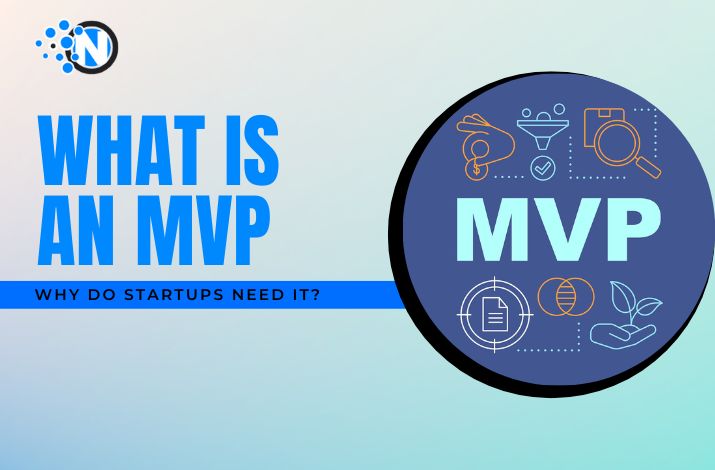What Is An MVP And Why Do Startups Need It?

Creating any startup is always a risk because it is not only the idea that matters but also the value that this idea can offer.
With the growing demand for innovation among both organizations and customers, more companies and startups are looking for solutions that can bring them profit and solve customer problems. That is why, today, MVP development for enterprises and startups is one of the key investment vectors.
The essence of any MVP is to evaluate how the user will accept the product or service. This approach allows you to correct mistakes, avoid risks, and check whether your idea has a chance of success.
Since failure of an idea in the case of startups not only means loss of money and time but can also sometimes lead to collapse, the value of an MVP cannot be overestimated. This can be called an additional guarantee and protection against failure.
Let’s take a closer look at what an MVP is, what its benefits are, and why it is crucial for startups.
What Is An MVP?
Conceptually, an MVP (a minimum viable product) is a product that includes only a minimum set of basic functions. The purpose of creating an MVP is to test the product and its idea in practice. With this approach, a minimum viable product is offered to potential customers to obtain feedback and opinions regarding the product. This gives the startup valuable information that can then be used to iterate and improve the future product.
The key elements of an MVP strategy include speed, experimentation, and learning. In addition, this methodology is often accompanied by an agile software development life cycle to increase efficiency in project implementation.
For startups, MVP provides an excellent opportunity to learn in practice what their potential customers want, expect, and need. This way, a startup can significantly reduce its risk by avoiding a common mistake – releasing a product that no one is interested in or doesn’t solve a problem.
An MVP strategy allows you to research your target audience, your product & idea, as well as the market. As a result, an MVP approach is often used by institutions of various sizes when they plan to release a product in a market that is new and unknown to them.
Specific benefits of an MVP strategy include experimentation and improvement. In other words, startups can safely experiment with ideas and their implementation to create innovative products and also have the opportunity to improve their product based on feedback from real customers.
Read Also: The 8 Best Crowdfunding for Startups

Benefits Of An MVP
As mentioned above, companies can experiment and improve the product with an MVP. However, the benefits of this approach are much greater since it is not only about the product or service but also about the vision.
One of the common mistakes that new and ambitious startups often make is trying to create the perfect product, do all the work from A to Z, and only then release it to the market. The problem here is that the way we can imagine a product and its value is often different from how end customers may perceive it. The result of such actions may be a waste of additional costs, time, and resources to finalize the project after its launch. However, the result of a mistake may also lead to the complete collapse of a startup and loss of trust. That is why the concept of MVP – a minimum viable product – appeared.
An MVP is a product that contains the key features that you would like to offer to a potential user. Despite being a “raw material,” the minimum set of functions is quite enough for the first users to use it. The main task here is to get real feedback as quickly as possible to improve the product, fix errors, and adapt it to the needs of the target audience and market.
The core benefits that an MVP brings to startups usually include:
- This allows you to quickly and cheaply assess the value of your product and idea;
- This allows you to increase excitement and attract attention to your product;
- This allows you to improve and adapt your marketing strategies;
- This allows you to get valuable feedback from real users;
- This allows you to minimize risks and avoid mistakes in the early stages;
- This allows the startup to start generating income faster;
- This allows you to focus on key functions and ensure their stability;
- This allows you to gain a deeper understanding of the target audience, their needs, and problems;
- This allows you to avoid over-engineering and spending on unnecessary/irrelevant functions;
- This allows you to better understand the market, its requirements, and how you can achieve your business goals;
Why An MVP Is Essential for Startups
To summarize, an MVP is a version of a product with a small set of features, which is usually enough for users to test it, form their opinion about the product, and give you feedback.
The key value and importance of an MVP for a startup in this case is testing your idea and hypotheses in practice due to direct interaction with real people whom you consider potential clients.
The goals of the MVP strategy also include reducing the time required to bring a new product to market, which gives a competitive advantage.
When we talk about an MVP and its importance, it should also be noted that a prototype and a minimum viable product are not the same. Conceptually, a prototype is about simulating a product, while an MVP is an already working product with only main functions. There is also a difference in vision here, namely:
- A prototype is about assessing the technical feasibility of a product.
- An MVP is about testing the viability of an idea and product in practice.
The importance of an MVP is that it allows a startup to find out what customers really want. This alone helps you avoid many mistakes when it comes to the idea and launch of a product.
Thus, an MVP is a valuable strategy for testing your hypotheses, correcting mistakes, and quickly adapting the product to the real needs of real users.




